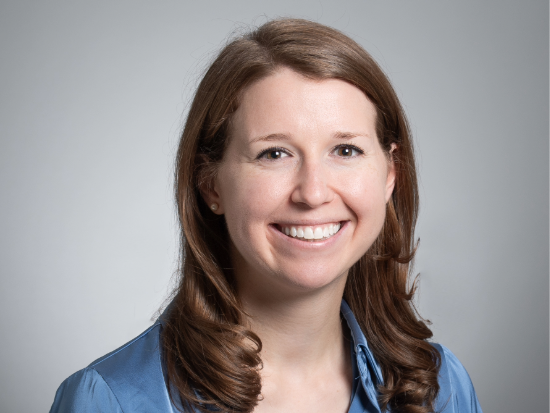 The UAB Department of Psychiatry welcomed Amanda Pomerantz, D.O., to the faculty as an assistant professor in July 2024.
The UAB Department of Psychiatry welcomed Amanda Pomerantz, D.O., to the faculty as an assistant professor in July 2024.
Pomerantz earned her undergraduate degree in Economics from New York University and her degree in Osteopathic Medicine from Lake Erie College of Osteopathic Medicine at Seton Hill in Greensburg, Pennsylvania.
She completed her psychiatry residency at Cleveland Clinic in 2023, where she also served as chief resident. From 2023 to 2024, she pursued a fellowship in consultation-liaison psychiatry at Vanderbilt University Medical Center.
Pomerantz expresses her excitement for her new role and her goals for contributing to the academic/scientific community.
What inspired you to pursue a career in this field?
Pomerantz: My interest in psychiatry began before medical school when I worked as a resident assistant in college and as a research assistant in a multidisciplinary movement disorders clinic, where both roles highlighted the importance of mental health. This interest deepened during my psychiatry clerkships in medical school, ultimately leading me to where I am today.
What is your primary area of expertise, and what sparked your passion for it?
Pomerantz: My primary area of expertise is in consultation-liaison psychiatry, and within this, my clinical interests are in transplant and critical-care psychiatry. I was drawn to these subspecialty areas due to their high medical complexity. I also enjoy working with and supporting patients who have experienced medical trauma, which is common in these populations.
What aspects of your new role here are you most excited about?
Pomerantz: I am most excited to be teaching trainees and helping to develop the transplant psychiatry program at UAB.
What are your goals for making an impact through both your teaching and patient care in this role? Pomerantz: My goals for making an impact in this role include providing psychiatric assessments that help to understand the patient best and ultimately guide treatment, especially for patients facing transplantation (or for those transitioning out of the hospital following critical illness).
I especially enjoy assisting with diagnostic clarity through second opinions, as many patients in our community lack access to high-quality psychiatric care. I am excited to increase exposure to these subspecialty areas of psychiatry for both medical students and residents and encourage clinical teaching in this area through high-impact article discussions, journal clubs, and case discussions while on service.